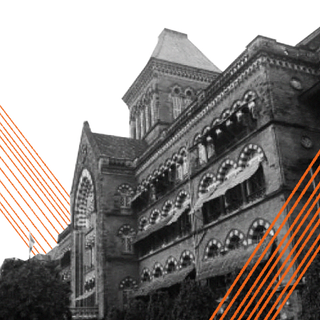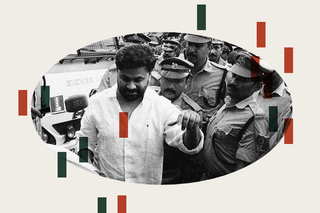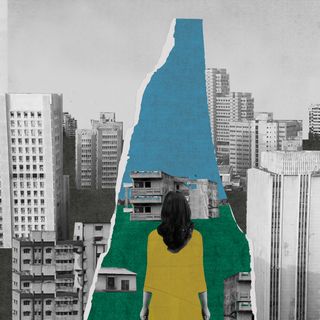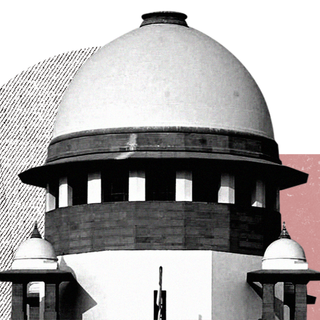
Holding Actor Dileep Accountable Is Crucial To Ensure Big Stars Are No Longer Immune to #MeToo
A culture of hero worship gives big stars impunity, but solidarity towards the survivor is key to ending this cycle.

In 2017, Malayalam film superstar Dileep was accused of orchestrating an abduction and sexual assault of an actor by seven men in a moving vehicle. Last month, as the trial began to draw to a close, fresh evidence incriminated him further, prompting calls for a reinvestigation in the case. The case, which has gone on for five years now, is significant: if it succeeds in holding the actor to account, it will represent a watershed moment in India’s film industry — where powerful stars are used to enjoying both impunity and immunity.
The ordeal is a familiar one by now — but also, not quite. We have heard or read about what it took to bring down Harvey Weinstein and Bill Cosby, the two giants of the entertainment industry who wielded inordinate power and influence, and used it to keep their crimes against a number of women covered up. But when they were finally outed and, even better, convicted and sentenced, it felt like a watershed moment in Hollywood’s history. No amount of power, charisma, and appeal could keep justice from ever touching these figures.
However, we don’t know what it’s like in India, because it never happened.
In India’s MeToo moment, which emerged around 2017, some powerful figures across different spheres were held to account. But not so in the film industry, where it made a tepid splash. The women who did accuse certain people — Telugu actor Sri Reddy who highlighted attention to “casting couch” culture, actor Tanushree Dutta in the Hindi film industry — were vilified and slut-shamed. Ultimately, the accused in both cases got away with it; no case was registered and things were back to normal. You may not even remember, now, that Rajkumar Hirani, a famous director, was also accused at one point. But none of these made a dent in the overall functioning of any of these industries, where nobody has had to reckon with a culture of impunity, silence, and quid pro quo the way that Hollywood has.
This was until the actor Dileep was formally charged as the main accused in the sexual assault against another actor. For the first time, a major actor dominating the silver screen soon turned into one of the prime accused in a serious sexual assault case, prompting much frenzy in Mollywood. In the five years that the case has been in trial, things continued to get murkier. The latest development is that the police charged Dileep and five others with conspiracy to harm the team investigating the assault. Another actor alleged that he witnessed Dileep threatening to seriously injure, even kill the officers involved.
The case is in the news once again for two reasons. One, the survivor revealed her identity in a social media post. “Though I am not the one who has committed the crime, there have been many attempts to humiliate, silence and isolate me. But at such times I have had some who stepped forward to keep my voice alive. Now when I hear so many voices speak up for me I know that I am not alone in this fight for justice,” the survivor wrote.
Related on The Swaddle:
#MeToo One Year Later: Where Are All The Accused Men?
Secondly, new incriminating evidence furnished by the actor’s former friend, Balachandrakumar, allegedly shows that he and another of the main accused were interacting closely prior to the assault. Balachandrakumar also alleged that the actor influenced a key witness to turn hostile during the case. With the added charges of conspiring to harm the officers in the case, Dileep’s bail plea is set to be heard on Friday, the 14th of January.
A detailed timeline of events in the five years since the case went on shows one thing: this is arguably a result of the actor slowly losing some of the steadfast support he had within the industry. Nevertheless, he still enjoys significant support: a recent cover of Vanitha magazine (“vanitha” translates to “woman” in Malayalam) featured Dileep with his family; the cover story painting a sympathetic portrait of the man-days after fresh allegations against him.
But things started out much stronger for him. The Association of Malayalam Movie Artistes (AMMA) expelled the actor first, before inviting him to rejoin again after another famous actor, Mohanlal, became its president. The industry’s support towards Dileep prompted the Women in Cinema Collective to launch campaigns in solidarity with the survivor. Now, with the survivor revealing her own identity, coupled with fresh evidence against Dileep, more and more people involved within the industry have voiced their support for the survivor.
Sexual assault trials are known to go on for a long time, but the time this particular case has taken, combined with media scrutiny and the sensational developments, show that when powerful people are involved, the stakes get exponentially higher for survivors who take the risk of holding them to account.
The Malayalam film industry itself is complicit in pushing the stakes so high in the first place, even as it allowed the actor to enjoy a more or less unscathed career. Many prominent actors and directors protectively closed in around Dileep, even as the survivor, an actor herself, was left out in the cold and vulnerable to greater harm. In a letter to the Chief Minister of Kerala, the survivor addressed an MLA’s comments about her not showing “appropriate” victim behavior by asking: “Should I have killed myself?”
The support she now receives from some in the industry is a positive, baby step. In the bigger picture, this case could well be India’s watershed #MeToo moment for the film industry — one where major stars should no longer remain immune to accusations. Arguably, this immunity is fuelled by a culture of hero-worship — in which big-ticket actors have a sea of ardent and loyal fans who don’t tolerate any kind of slander of their favorite hero. Male stars who enjoy this kind of support, therefore, have slim chances of even being held accountable, let alone face any repercussions for anything they do. Worse, those who are called out spend some time in the shadows, before resurfacing and continuing business as usual.
The support towards the survivor is thus crucial because it prompts a paradigm shift. For the first time, those who step forward against extremely influential individuals with huge fan followings can actually hope to receive some support and solidarity.
Many frame accusations against powerful individuals as part of a conspiracy to defame them. This makes a survivor-centric approach that much more important: wherein the narrative is around the costs of survivors speaking up, rather than that of perpetrators who are called out. If MeToo makes a resurgence — this time in the film industry, and more seriously than before — it gives us an opportunity to take past lessons forward and begin instituting accountability not for the sake of retribution, but for change. It will, importantly, break down the personality cults that protect heroes, and build a culture that is safe and inclusive for everyone.
Unlike what critics of the #MeToo movement say, this is more than just a game of “he said she said.” It paves the way for many survivors to hold their powerful perpetrators to account — with the small reassurance that there is greater solidarity now than before. And that would shield them from the wrath of loyal hero-worshipping fans and a largely disbelieving public.
Moreover, it means that we may inch closer to our own Weinstein moment of reckoning — in which the people who are treated as gods on Earth are no longer infallible, and their reign of unchecked impunity can end.
Rohitha Naraharisetty is a Senior Associate Editor at The Swaddle. She writes about the intersection of gender, caste, social movements, and pop culture. She can be found on Instagram at @rohitha_97 or on Twitter at @romimacaronii.
Related


Urban Villages of India Are Being Erased by Development. How Can We Preserve Their Histories?
